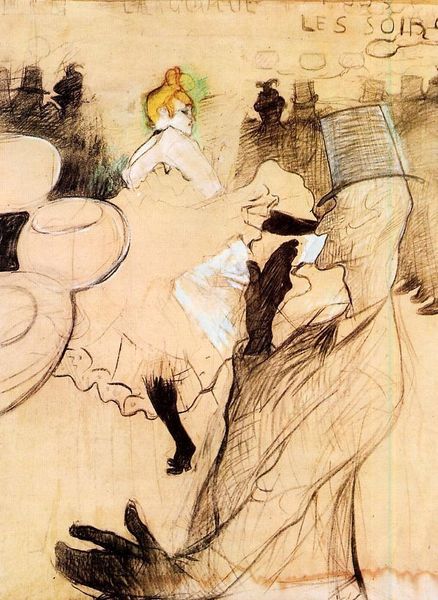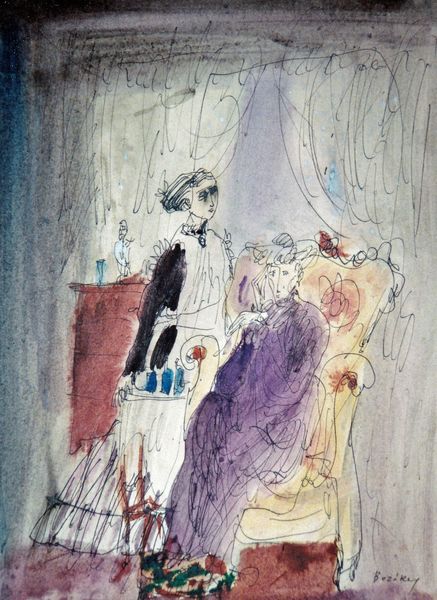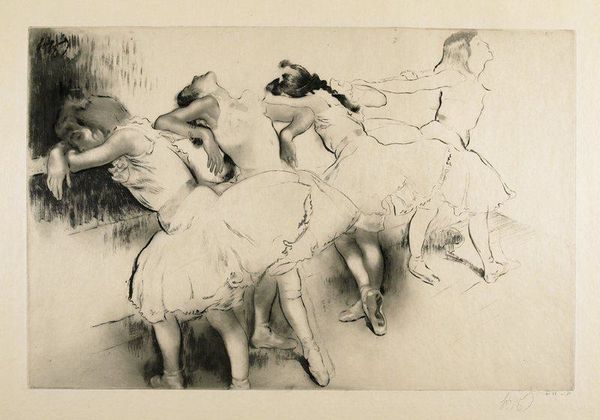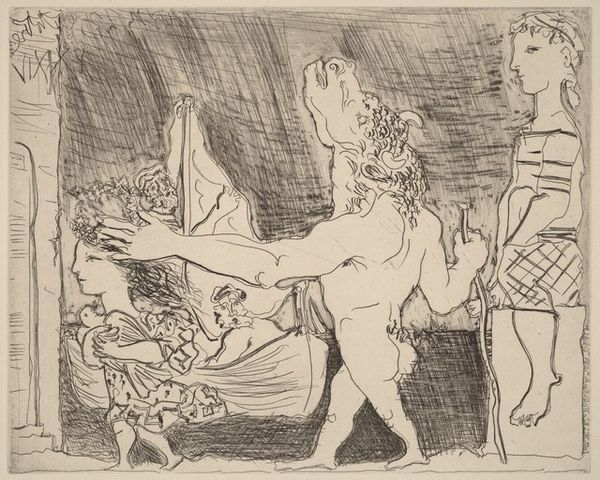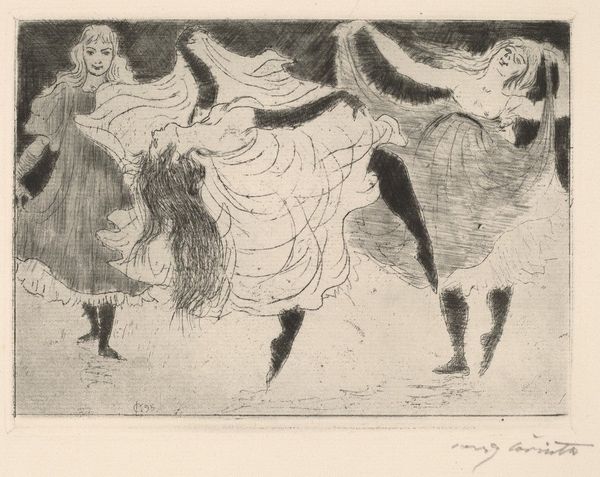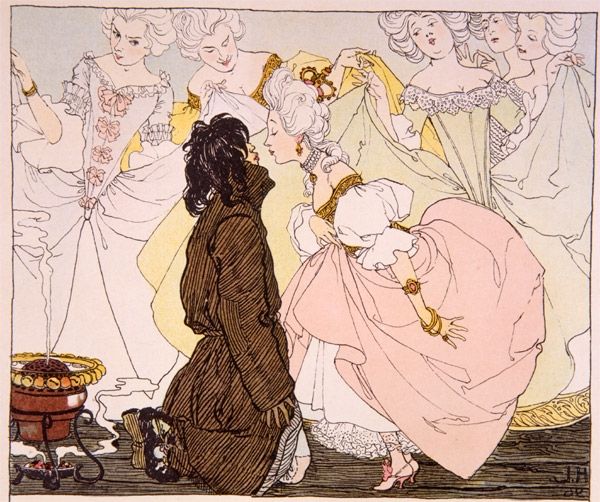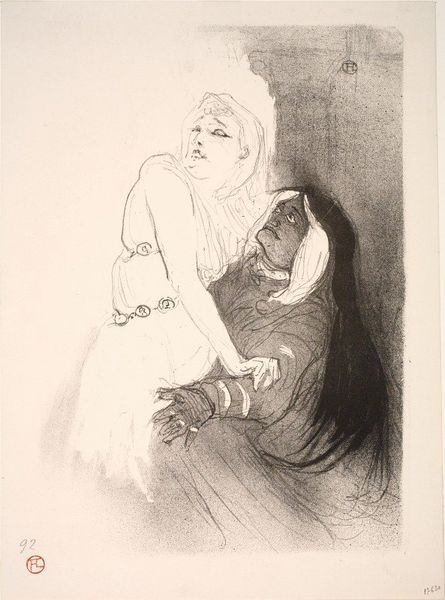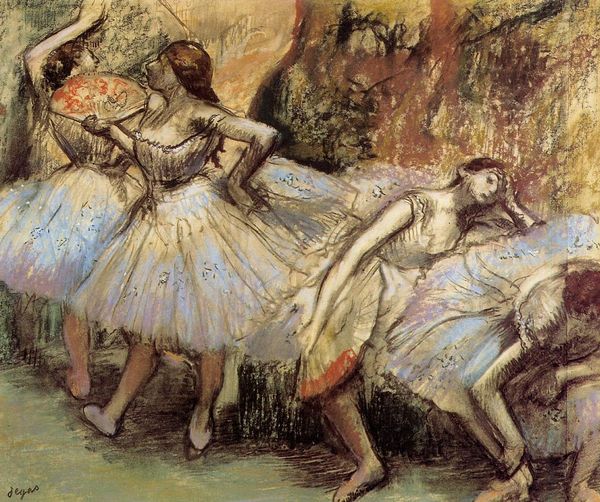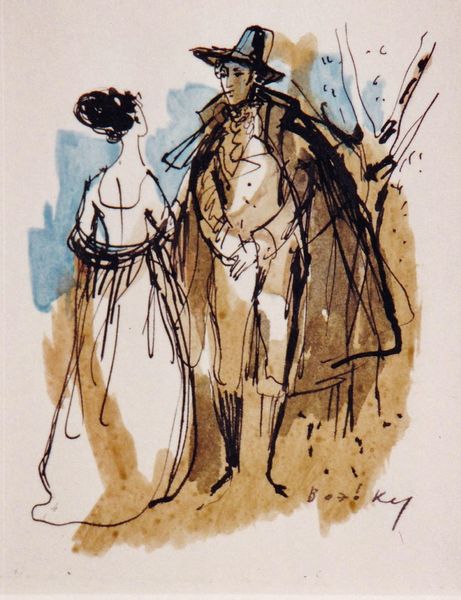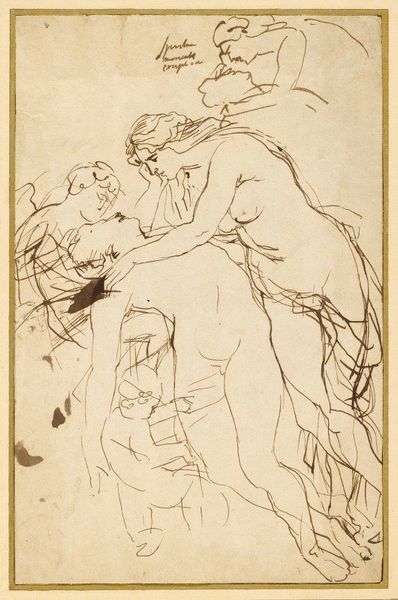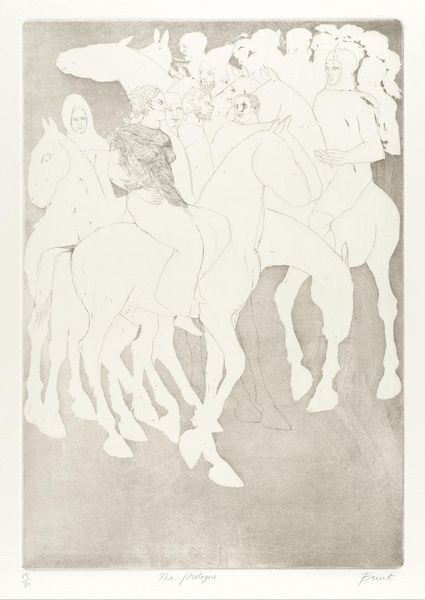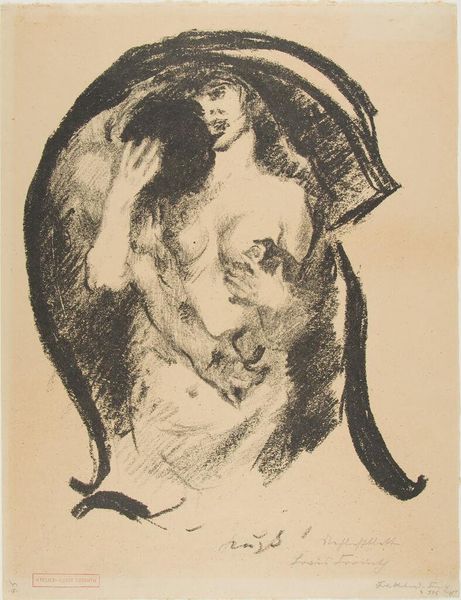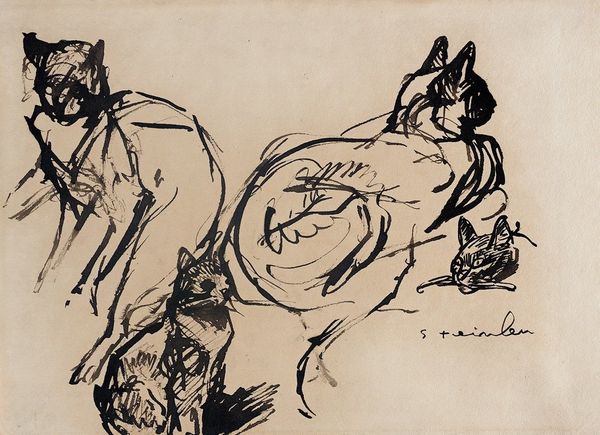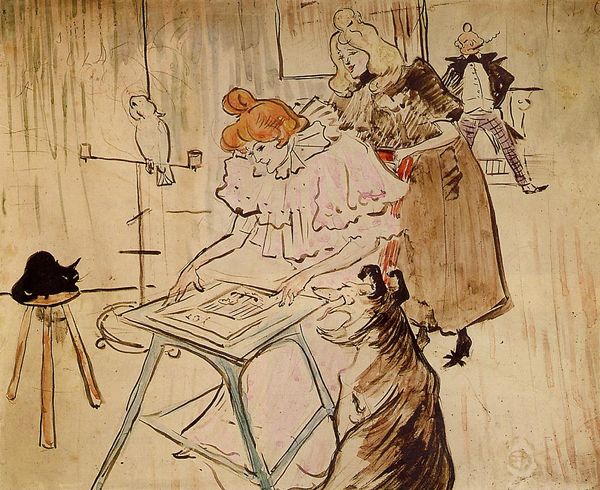
#
amateur sketch
#
quirky sketch
#
pencil sketch
#
incomplete sketchy
#
study drawing
#
charcoal drawing
#
possibly oil pastel
#
fluid art
#
detailed observational sketch
#
fantasy sketch
Copyright: Public domain
Constantin Guys created this watercolor wash drawing, "Bazar de la volupté," capturing a scene of Parisian demimonde life. Guys, working in mid-19th century France, was a keen observer of the changing urban landscape and social dynamics. This image encapsulates the era's complex relationship with modernity and morality, depicting what appears to be a transaction or interaction between a man and two women. The figures, rendered with loose, fluid lines, suggest a sense of transience and fleeting encounters characteristic of modern urban life. The title itself points to the commodification of pleasure and the burgeoning culture of spectacle. France, at this time, was undergoing rapid industrialization and urbanization, leading to shifts in social norms and class structures. Guys' art provides a window into the hidden corners of Parisian society, raising questions about the politics of representation and the artist's role as a social commentator. To fully understand the significance of Guys' work, we need to delve into the historical context, examining sources like newspapers, police reports, and fashion plates. These resources help us decipher the visual codes and cultural references embedded in the artwork.
Comments
No comments
Be the first to comment and join the conversation on the ultimate creative platform.
